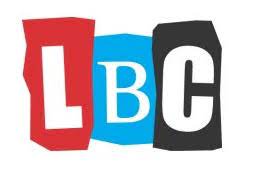
I think we should be worrying more about whether nuclear power is economically sustainable, than whether it is environmentally sustainable. The government has missed a huge opportunity to help drive energy bills down, by fulfilling the commitments that they have already made to improving energy efficiency in our homes, which would really help people right now. It would also do something to help with the climate. This announcement not only says that the government isn’t going to help get energy bills down, but that they are actually going to put them up, much more than they need to go up in the future, in order to deliver very uneconomic nuclear power stations.
By doing this the government will be throwing away the money of businesses and homeowners who can’t afford it. There is no need for more nuclear power stations in order to get to net zero and meet our climate change commitments. I hope that the chancellor knows more about the economy than he does about the electricity system. He said today that nuclear energy will be cheaper than other sources of electricity. Right now we can buy wind power for about forty pounds per megawatt hour, and nuclear power costs about 125 pounds per megawatt hour. So, I’m not sure that his arithmetic is very good. He talked about baseload power as being the reason that we need to do this, well a decade ago the former CEO of National Grid said that baseload was an outmoded concept. So, I really think that the chancellor has got it wrong today.
How we meet demand is a valid question, the lights have got to go on when you press the switch, but we do already have lots of answers to that question. This is not a new problem, we have been talking about it for a very long time. Actually, the real program for making energy bills cheap and affordable for everybody, and guaranteeing the security of supply, is to invest in energy efficiency, to invest in renewables, and to invest in batteries with long-duration storage, so that we are able to cope with those very rare periods when we might have relatively low wind. So, there are lots of things that we can do. The question is “What is the cheapest way to guarantee that you get reliable electricity, that turns on?” Nuclear is far from the cheapest way.
The issues with modular nuclear reactors are, you can’t buy them anywhere, no one is selling them. Even if you could you can’t only buy one, because if they are modular you would need to buy a large number of them. So far, the idea of modular reactors is kind of ‘pie in the sky’. Maybe at some point in the future there may be a place for small modular reactors, I don’t know. But, if the government target is going to be met we have to provide affordable power by 2035, without big nuclear reactors, or small modular nuclear reactors. So, if the government can do that and meet its target, what need would we have for small modular nuclear reactors?
We turn off a lot of our wind power at night because there is no demand for it. We could use that electricity that we are paying people not to produce. We can use that electricity to make hydrolyzed water to make hydrogen. We can store that hydrogen to run modified existing gas generators, like the ones that we already have, and use that on the very rare times that we need power that is not wind or solar.
The chancellor is not the first person to promise lots of nuclear power. Mrs. Thatcher, who was very good at getting what she wanted, promised ten nuclear power stations by the year 2000, and actually, we only got one. It is much more difficult to meet our energy needs with nuclear, and it is much more expensive. So, it is much better to rely on something that we already know how to do, and that we can get done quickly. Time is the real problem, both for energy bills and for the climate.
These are excerpts from an interview with LBC. The full interview can be listened to here:
